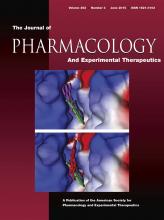Abstract
Partial agonists of peroxisome proliferator–activated receptor γ (PPARγ) reportedly reverse insulin resistance in patients with type 2 diabetes mellitus. In this work, a novel non–thiazolidinedione-partial PPARγ ligand, MDCCCL1636 [N-(4-hydroxyphenethyl)-3-mercapto-2-methylpropanamide], was investigated. The compound displayed partial agonist activity in biochemical and cell-based transactivation assays and reversed insulin resistance. MDCCCL1636 showed a potential antidiabetic effect on an insulin-resistance model of human hepatocarcinoma cells (HepG2). High-fat diet–fed streptozotocin-induced diabetic rats treated with MDCCCL1636 for 56 days displayed reduced fasting serum glucose and reversed dyslipidemia and pancreatic damage without significant weight gain. Furthermore, MDCCCL1636 had lower toxicity in vivo and in vitro than pioglitazone. MDCCCL1636 also potentiated glucose consumption and inhibited the impairment in insulin signaling targets, such as AKT, glycogen synthase kinase 3β, and glycogen synthase, in HepG2 human hepatoma cells. Overall, our results suggest that MDCCCL1636 is a promising candidate for the prevention and treatment of type 2 diabetes mellitus.
Footnotes
- Received January 21, 2015.
- Accepted April 13, 2015.
H.L., C.Z., and F.S. contributed equally to this study.
This study was supported by the National Natural Science Funds of China [Grants 81102374 and 81201650]; and the Key Technologies R&D Program of Tianjin [Grant 14ZCZDSY00038].
↵
 This article has supplemental material available at jpet.aspetjournals.org.
This article has supplemental material available at jpet.aspetjournals.org.
- Copyright © 2015 by The American Society for Pharmacology and Experimental Therapeutics
JPET articles become freely available 12 months after publication, and remain freely available for 5 years.Non-open access articles that fall outside this five year window are available only to institutional subscribers and current ASPET members, or through the article purchase feature at the bottom of the page.
|







